
Why do we introduce solids to a babys diet
Why do we introduce solids to a babys diet
About halfway through the first year of life, babies begin to outgrow their liquid diet, which no longer supply them with enough nutrients to support their rate of growth. It is important to introduce complementary foods according to the growth and developmental needs of individual babies.
Start with gentle soft foods, such as Nestlé NESTUM or Nestlé CERELAC® baby cereals, at around six months of age. Use this period to train and adapt your baby’s taste to semi-solid foods, before such foods become essential for continued growth and development.
Introducing solids too early or too late is undesirable. Starting too early may lead to allergies and overfeeding, whilst starting too late may lead to malnutrition and difficulty in adapting to solid foods.
This phase of childhood nutrition is a time of transition from a liquid diet to soft foods, finger foods and finally, to family foods.
Related articles

The Confident Eater from around nine months
As your baby develops his chewing and swallowing ability, he is now ready to take on more challenging, richer tastes and textures.
5 mins to read
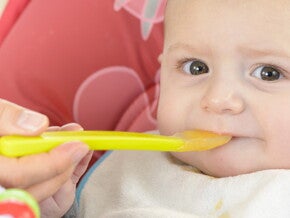
The Explorer Eater from around seven months
When your baby has successfully learned to eat solid food, he is ready to explore new tastes.
5 mins to read

At nine months
Your baby sits alone and pivots into a crawling position. He crawls on extended limbs and holds on to furniture to pull himself up to stand.
5 mins to read

Baby meal planner 10 to 12 months
Around 10-12 months, babies are ready for harder finger foods & self-feeding.
1 min to read

A day in your 6 to 7 month old’s diet
This sample day was created by registered dieticians to help meet the nutrition goals for your 6 to 7 month old baby.
5 mins to read
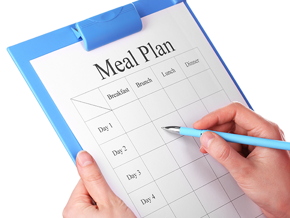
Baby meal planner 8 to 10 months
Around 8-10 months, increase the variety and texture of foods for your baby.
1 min to read
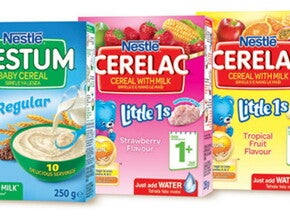
Nurturing small tummies
Nurturing small tummies
5 mins to read
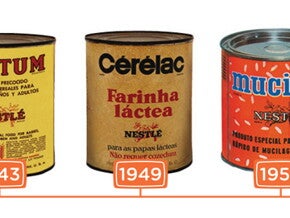
Nestlé Infant Cereals Infograph
Celebrating trusted spoonfuls for 150 years with infant cereals
5 mins to read
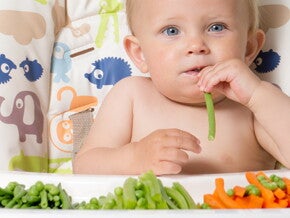
How to handle choking
A new texture, taken for the first time, may make your baby gag out of surprise.
5 mins to read

When do we introduce solids to the diet
Birth to six months
It is too early to introduce solids if your baby:
5 mins to read

At seven to eight months
Look out, baby’s on the move!
5 mins to read
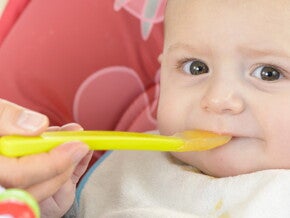
First spoonfeeding experience
Choose a spoon that is small and smooth-edged. You may find plastic or rubberised spoons easier to use.
5 mins to read

Reducing the risk of allergy
There is an increased risk of allergy when solids are introduced too early, i.e. before
26 mins to read

Setting the stage for his first taste
Here are a few tips for getting your baby ready to take that first spoonful of baby food.
5 mins to read

Sugar: Fact or Fiction Quiz
Not all sugars are created equal and therefore not all sugars are bad. The main role of food is to provide energy and nutrients for growth and development.
5 mins to read

Weaning
THE WEANING GUIDE: INTRODUCING SOLIDS
26 mins to read
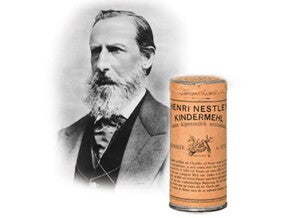
Celebrating 150 years
And it all began with Henri Nestlé’s mission to give babies a good foundation in life
5 mins to read

The learner eater from around six months
The choice of your baby’s first solid food is very important. It must be suitable for her developing digestive system and be finely textured and easy to swallow.
5 mins to read

The birth of an iconic brand
The birth of an iconic brand conquering the world
5 mins to read